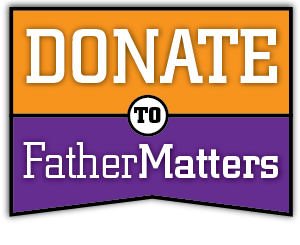Financial Matters May 2013 – Stuart Burns
A few months ago we discussed budgeting and the need to eliminate debt. One of tips was to reduce expenses and look for practical ways to save money so that you can either bring down debt quicker or to save for things like a down payment on a house, children’s education, or starting that retirement savings. So this month we are going to look a little deeper at practical ways to save some money which we all can do.
How to cut expenses on Credit Cards/Loans
Credit Cards and Loans are a pretty big topic that you can make immediate savings. Some of this may require some phone calls and work but the effort can save a lot in the long run;
- Stop using credit.
This is the most obvious if you are trying to pay down debt. Don’t compound the problem by making purchases on credit that will end up costing much more if you are only making minimum payments. - Look for rewards
If you use credit and pay the balance off monthly, look for credit card that will put money or rewards back in your pocket. Be cautious of the annual fee if one applies, but it may still be worth it.
Call your bank and see if you can negotiate lower interest rates. This could save you money if you are carrying balances month to month. If you have multiple relationships like mortgages, checking accounts, many banks may try to lower the rates a little because they want your business. Keep in mind though you need to call and ask – The worst that can happen is the bank may say they can’t lower it, so you don’t lose anything. - Less may be better
If you have debt on different credit cards and loans, it could be better for you to consolidate into one loan which can save you on overall interest. - Don’t be late
If you have any loans or debts make sure you make payments on time. The better your credit score, the lower your interest rates will be when making big item purchases like homes and cars. This will save you money as you don’t pay more in interest then necessary.
Cutting expenses on Mortgages
Since a home is the largest item that most of us will purchase in our lifetime we will want to look for ways to save. Consider applying one of these rules.
- Compare rates
When purchasing a home you will want to check the rates from a few different institutions. A small change in the rates will lead to big savings over the term of the loan – for example a difference between a 2.50% rate and 2.60% rate can lead to 100’s or 1,000’s saved. - Think time
Another big factor in home mortgages is the length of the loan. Currently the rates in Arizona are running about 3.375% for a 30 year fixed rate loan and 2.37% for a 15 year fixed rate loan. Some benefits of the 15 year include; the lower interest rate, a payment only slightly higher than the 30 year payment amount, and you will build equity and pay off loan sooner. - Be Creative
Some ways to save money on mortgages is to think creatively on paying. Some institutions have plans like bi-weekly payments which save money because you are paying down the principal amount faster.
Another way to approach the payments is a long known benefit of paying with the amortization. What that means in simple terms is that at the beginning of the loan the payment amount applied to principal is smaller and the amount to interest is larger. As the loan is paid the amount paid to principal and interest starts to switch (more paid to principal and less to interest). One common way to approach this is to look at the amount of the monthly payment paid to the principal and make an extra payment in the same amount. For example:
Total monthly payment = $1,000. From the total amount, $900 is paid to interest and $100 is paid to the principal. You would want to make an extra payment of $100 toward the principal only on top of your payment. Through the loan you will make larger extra payments as the principal amount increases each month. You can get the amortization calendar from your bank or financial institution. The end result is by paying this way you pay less interest and pay the loan off in just over 1/2 the total time (like 18 years for a 30 year loan). - Might be the time to Refi
If you own a home it might be time to consider refinancing while the interest rates are at all time lows. Some things to consider are; what is your present rate vs. the current rate? How long will you be living in the house? Is the savings worth the small fee that will be charged? Also a cautionary note is that I am not recommending taking out equity when you do this, unless it makes sense to consolidate. Even then I am somewhat hesitant to recommend it after the recent economic downturn.
Cutting expenses on Energy
If you live in Arizona you know we are getting ready for the summer heat and the A/C bills will start looking more like a house payment, so it’s important to look for ways to save money on energy.
- Set the Thermostat
You can save 5%-15% in your monthly bills by setting your temperature to 68 degrees in the winter (easy to bundle up) and then 78 degrees during the summer.
Look for the energy payment plans to watch costs and save. The benefits are you pay less during the off peak hours for energy and also have the set payment (which still is evaluated year over year). - Cold is good
Many people are not aware of this, but if you use hot water to wash clothes it costs an estimated $.64 per load. If you wash using cold water it reduces the cost to $.04 per load. - Turn off the lights
Make sure you are doing the simple things like turning off the lights when not in use. Look at all your appliances such as; the Microwave, DVD player, Coffee maker. Anything that shows the time continuously is using energy. When you go on vacation or any other time you are away you should unplug these items.
For more ways to save on energy go to: HYPERLINK “http://www.energy.gov” www.energy.gov
Cutting expenses on Day to Day items
- Stick to the list
When you go shopping if you create a shopping list it will help you to focus on the items you need and you can bypass the non-necessities (although that candy isle looks pretty good to me) - Coupons
My wife takes the time to look at the newspaper each weekend and get the coupons. We save generally 50-60% of the total food bill with the combination of the store savings card and the coupons. This can translate into 100’s saved over the course of the year if you take the time to do this. - Buy Bulk
There are some items that it will make sense to go to places like Sam’s Club or Costco and buy in bulk. Consider this if you know you use a lot of a particular item and can get it at a lower price. - Cut the cable
With cable prices constantly rising and at an average of $86 now in Arizona, you may want to consider cutting the cable TV. Some alternatives are watching the TV on the internet – many shows are placed out there. You can also catch the latest movies at a lower cost from Netflix, the “Red box” at many stores, or other DVD rentals.
If you keep the cable, look to cut costs by bundling the TV, Internet, Phone and it may save you money. This is another area that it never hurts to call and negotiate a lower price as the company may have ways to lower the cost to keep you as a customer. - Too Many Calls Waiting
If you have both cell phones and a landline phone you might want to consider saving by dropping the landline phone. Consider how much you use the landline, costs involved, if there are other reasons to keep both types of phones. - The Home Cafe
To fill that craving for Starbucks or Dutch Brothers, think about making your own coffee at home and bringing with you. Many supermarkets now carry the actual Starbucks brand coffee as well – so you can brew yourself and save money
While we have the home café open, why not pack that lunch or snacks as well. I bring my lunch bag most days to work with small meals and some snacks like protein bars to grab between meetings. Packing your own food will save you over running to the vending machine or eating out.
For some great financial tools and resources go to: Bank of America and Better Money Habits or contact Stuart Burns at 602-464-1381 or email me at stuart.j.burns@bankofamerica.com




